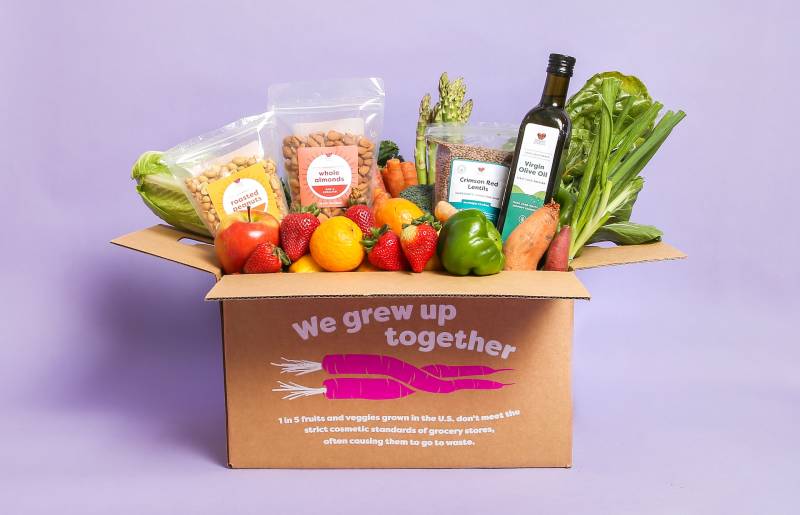The coronavirus pandemic has transformed grocery shopping. Grocery sales have increased significantly since the onset of the pandemic, and the convenience and safety of online grocery and delivery companies have contributed to a historical boom.
Two Bay Area online grocers in this swift growth are Good Eggs and Imperfect Foods. Each company is carving out a respective corner in the burgeoning marketplace by adding values to their missions around product quality, affordability and above-average compensation that sets them apart from gig-economy fueled tech companies like Instacart and Postmates.
“Online grocery is definitely having its moment,” said Bentley Hall, CEO of Bay Area based online grocery purveyors Good Eggs. “I think the consumer behavior shift is large and fast and here to stay.” Hall explained that even though the company has added more delivery windows than ever before to meet growing demands, they sell out in minutes. “We've more than doubled our revenue in the last two months.”
Growing During a Pandemic
Good Eggs, which buys wholesale produce and prepared foods directly from vendors that’s later re-packaged and sold on its website, has been able to meet the growing demands of its new and existing customers by expanding its workforce and ramping up the volume of orders from suppliers. “What we heard from most of our suppliers as this all happened was that at least half of their business was through restaurant and food service and that had dried up overnight,” Hall said. “Instead of on-boarding a ton of new suppliers, [our] focus shifted to how we serve our existing suppliers so we can have a more resilient supply for our customers in this moment.”

The food system’s resilience has been thoroughly tested by the pandemic and companies that have adapted their supply chains to systemic shocks have seen growth during this pandemic. “In the early phases of the pandemic, when airlines and hotels and restaurants shut down, we saw enormous quantities of food being stuck in the wrong supply chain,” said Phillip Behn, CEO of San Francisco-headquartered Imperfect Foods. Behn’s company focuses on reducing food waste by buying and delivering superficially less than perfect produce, pantry staples and proteins for discounted prices to over 400,000 customers across the country. “We're a small company so we did what we could. But it was quite painful to watch the amount of food that ended up being diverted to less than ideal uses,” he added.




